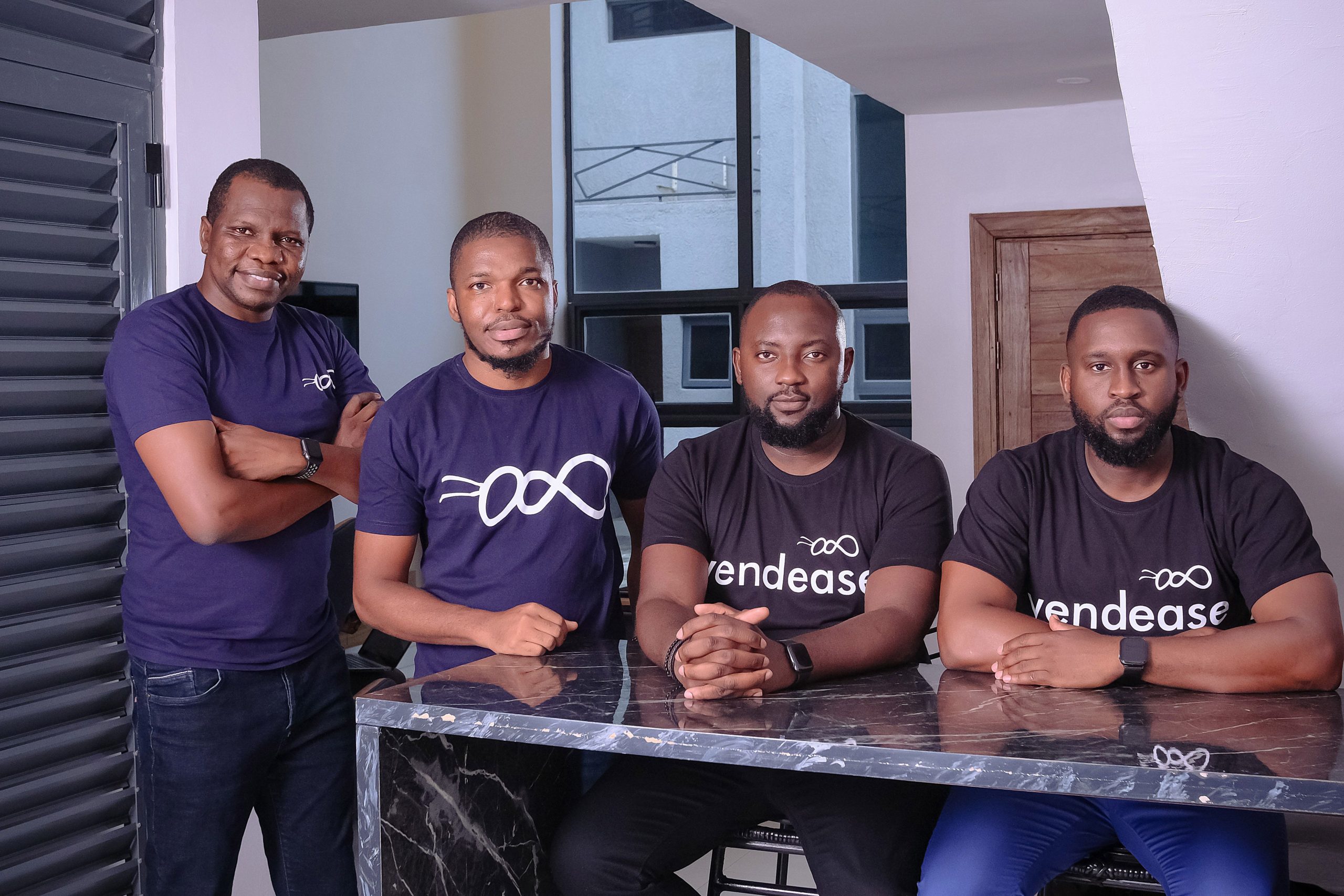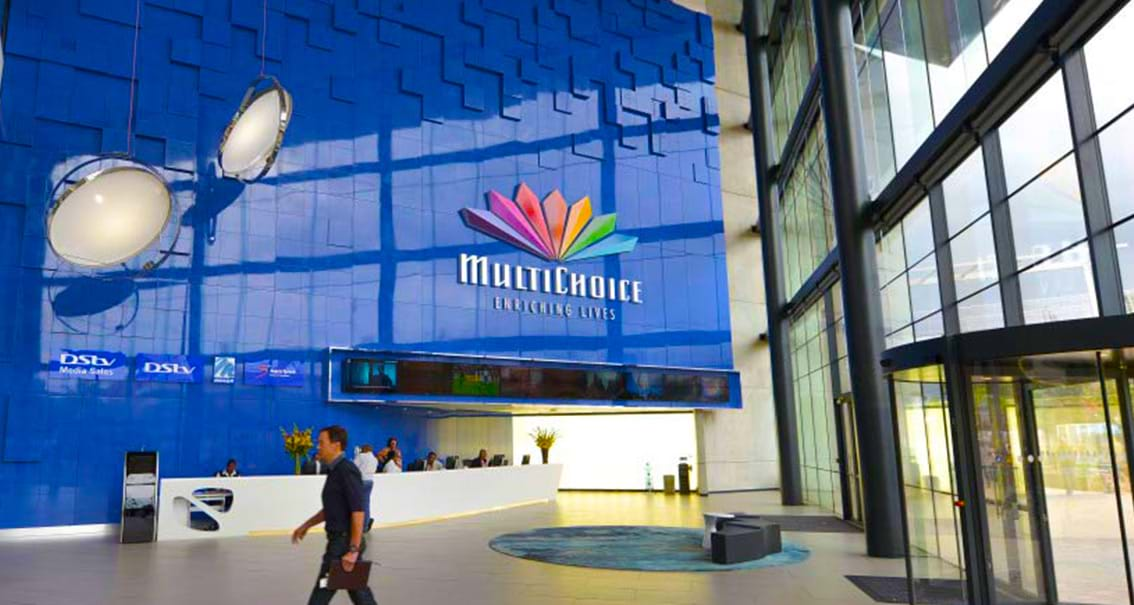
IN PARTNERSHIP WITH

Good morning ☀️
Ever wondered how much it’ll cost to travel Africa? Well, this digital nomad is doing it on a $2,000 budget.
Last week, we wrote about Lily Dada, a digital marketer and travel consultant, who has been to 10 African countries in five years.
For Digital Nomads, Lily told us about her experiences travelling by road from Nigeria to Senegal, her six-month trip to Kenya, and her near-death experiences in Togo.
CRYPTO MARKET

|

|

|
|---|---|---|
|
Bitcoin 
|
$16,545 |
– 0.20% |
|
Ether 
|
$1,214 |
– 0.44% |
|
BNB 
|
$312 |
– 0.44% |
|
FTX Token 
|
$1.36 |
– 1.75% |
|
Binance Coin |
$1.00 |
0% |
|
|
Source: CoinMarketCap
|
|
* Data as of 13:00 PM WAT, November 27, 2022.
VENDEASE LAYS OFF STAFF FOR “PERFORMANCE ISSUES”

In last week’s edition, we reported that food procurement startup Vendease was one of the latest startups to lay off members of its workforce.
According to a statement seen by TechCabal, the startup now states that the layoffs had nothing to do with the global economic downturn, and everything to do with underperformance.
Vendease CEO Tunde also confirmed this to TechCabal, revealing that the move was made to let go of employees who were not contributing their fair weight.
The startup has reportedly grown its workforce by almost three times in the last 12 months and has also seen a 200% increase in the number of users on its platform—which amounts to 3,000 users—within the same time. Kara also noted that the startup has also seen its revenue grow by five times since last year.
“To continue this remarkable growth and success, we had to make the difficult decision to adjust our headcount. This was done to address performance issues we had identified within the team. Every employee that has been affected by this adjustment has been offered a comprehensive severance package that will adequately compensate them for any inconvenience caused by the decision,” the statement read.
According to Kara, affected employees had been on performance improvement programmes for months and Vendease had made various attempts to support their improvement. “We are very big on people, and people are what has gotten us here. We did not want to include it that it was performance-related because even if you don’t perform at Vendease, you can go elsewhere and perform.”
Zoom out: The startup, which raised $30 million in September, is now on the hunt to replace the 27 staff members who were let go.
Receive money from family and friends living abroad in minutes this holiday season with $end.
Visit send.flutterwave.com and do it now!
This is partner content.
MTN ROLLS OUT 5G IN ZAMBIA

Last week, the telco became the first mobile operator to launch 5G commercially in the southern Africa nation.
This comes 11 months after MTN, in January, piloted 5G trials in the country with the aim to “enhance social, cultural and commercial participation amongst the citizens of Zambia and also the global community.”
At a launch ceremony which featured Zambian president Hakainde Hichilema and MTN Group CEO Ralph Mupita, the telco announced that the service is now available to the public.
Much like its 5G launch—and arguably its 4G operations—in Nigeria and South Africa though, MTN’s 5G service in Zambia will not be everywhere Zambians go.
MTN Zambia CEO, Bart Hofker, announced that the 5G service covers approximately 65% of the population in the cities of Lusaka, Kitwe, and Ndola, as well as parts of Chingola, Solwezi, and Kalumbila. By 2023, the service aims to have 100% coverage of Lusaka, Kitwe and Ndola.
The telco also announced expansions for its 3G and 4G services. It will reportedly launch 45 rural sites in 2022, and 100 more in 2023 as part of its rural connectivity programme.
The big picture: Meanwhile, Airtel is on MTN’s tail. In October, Airtel Zambia spent $29 million acquiring additional spectrum in preparation for its 5G launch in Zambia.
MULTICHOICE EXPANDS ACCELERATOR PROGRAMME TO EIGHT MORE COUNTRIES

The MultiChoice Africa Accelerator Programme, which disbursed $16 million in funding to six emerging tech businesses last year, is expanding to eight more African countries.
According to a statement from MultiChoice, the countries being added as beneficiaries of the programme are Ivory Coast, Senegal, Nigeria, Ghana, Kenya, Zambia, Angola, and Ethiopia.
The MultiChoice Africa Accelerator Programme, which started in South Africa in 2020, is an initiative of the MultiChoice Innovation Fund, in collaboration with Dubai-based business incubator Companies Creating Change (C3), which gives entrepreneurs access to the tools, skills, and financial support necessary to grow their businesses.
MultiChoice has also partnered with EOH, a tech services company that will bring its expertise to the table in terms of tech advisory, development sprint, and technical support.
The first phase of the MultiChoice Africa Accelerator Programme invites nominations of businesses or entrepreneurs for the programme from public and private-sector partners in each country. Subsequently, 29 selected startups embark on a virtual training course. The initiative is aimed at established businesses that are already operating and looking to scale up by attracting further investment.
The virtual training course takes place over several weeks, teaching startup owners media skills, how best to market their businesses to investors, create attractive business plans, and tailor their proposals to investor requirements. The programme then culminates in a pitch day where 11 startups are selected to pitch their solutions to international investors.
Increase your online sales with a Paystack Storefront – a free, beautiful seller page that helps you bring creative ideas to life.
👉🏾 Learn more at paystack.com/storefront.
This is partner content.
TC INSIGHTS: AFRICA’S DIGITAL IDENTITY AMBITIONS
An estimated one billion people globally lack official identification. Africa contributes half of that number with 500 million people in Africa having no form of legal identification. The lack of identity means they are unable to access critical services, economic opportunities, and exercise their rights.

While many countries have adopted national identification (ID) systems to fill this gap, the expenses that come with building and managing them can be quite expensive due to the extensive use of analogue systems. With the increasing internet penetration rates across Africa, it is time for African countries to consider adopting digital identification. Their relative ease, low cost, and convenience compared to analogue systems mean digital identity is more likely to be effective in helping to solve the identity issue on the continent.
Currently, African companies that provide banking and financial services, mobile operators, and digital commerce platforms, use some form of digital identity to verify and authenticate the identities of their users when providing services. This helps in reducing theft and fraud, decreasing administrative and compliance costs associated with managing personal data. Yet, it is important to note that these digital identities are in silos. There is a need for interoperability to harness the benefits of digital identity.
According to Tunde Fafunwa, lead advisor for the United Nations Economic Commission for Africa (UNECA’s) Digital Centre of Excellence, “the case for a digital ID in Africa is more significant now than ever before, cognizant of the economic ravages of the pandemic and how it has affected physical business and government transactions.”
The public sector can lean on this expertise from private organisations to provide ID systems and harmonise existing citizen data as in the case of SIM card registration. The benefits of doing this include increased revenue through reduced fraud, and increased tax collection.
For example, in Uganda, verifying the identities of civil servants against the national ID database reportedly saved the government $6.9 million in less than a year by removing some 4,664 ghost workers from the public payroll.
For digital identification to become mainstream across Africa, there is a need for concerted efforts between both private and public sectors to create unique identification for citizens; and interoperability between diverse identification systems.
Africa’s digital economy is on an upward trajectory, but a robust digital identity framework can increase its size.
You can download all our reports here and watch videos from our events. Send your custom research requests here.
IN OTHER NEWS FROM TECHCABAL
A mixed bag: Ghana’s fintechs face a souring local market.
Revio raises $1.1 million to “radically reduce failed payments and churn”.
South African crypto exchange VALR launches in Zambia.
JOB OPPORTUNITIES
- Binance – SEO Content Specialist – Lagos, Nigeria
- Klasha – Senior Product Manager, Senior Product Designer – Lagos, Nigeria
- ETAP – Growth Associate – Africa (Remote)
- Digital Vision East Africa Limited – Android Developer – Nairobi, Kenya
- Optica Limited – Data Analyst – Nairobi, Kenya
- Habaripay (GTCO) – Front End Developer, UI/UX Designer – Nigeria
- Fooji Inc –Full Stack Developer – (Africa) Remote
- MTN – Senior Manager, Digital Marketing – Nigeria
- Big Cabal Media – Learning & Development Executive, Software Developer, Commercial Director, Sales Associate – Lagos, Nigeria (Hybrid)
- Zikoko – Money Writer, Inside Life Writer, HER Writer, Copy Editor – Remote
- TechCabal – News Editor – Africa
There are more jobs on TechCabal’s job board. If you have job opportunities to share, submit them at bit.ly/tcxjobs.
What else is happening in tech?
REFER A FRIEND

| Click to share | |||
Share your unique link | |||
| https://techcabal.com/referral/?email={$email} | |||
Share on social | |||
    | |||
| Powered by Viral Loops | |||



























